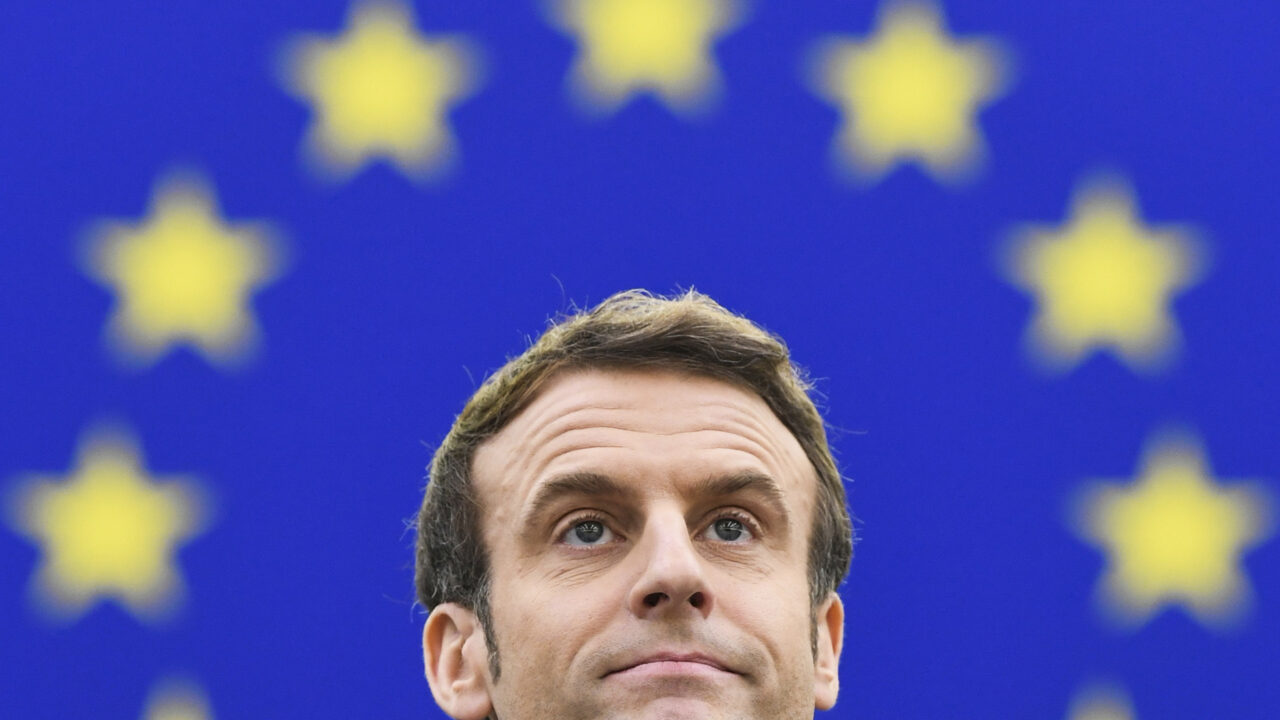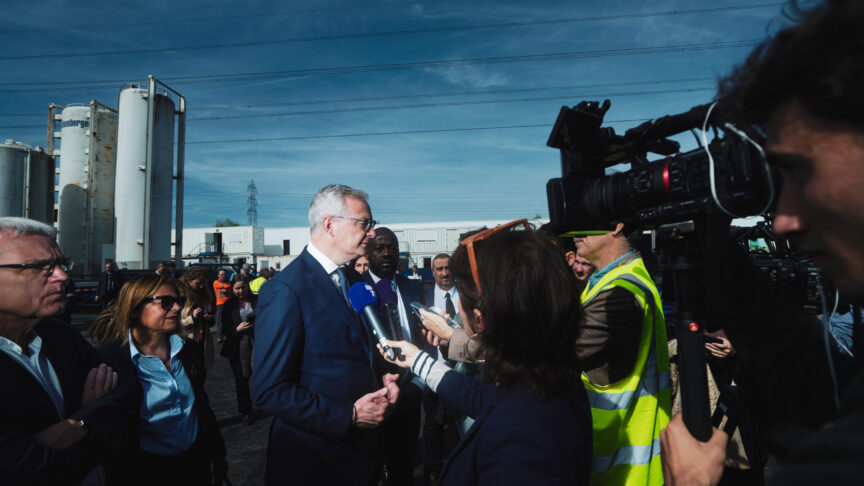Battle redux: Macron, Le Pen, and France’s European election campaign
President Emmanuel Macron has set his strategy for this year’s European Parliament election. At its heart are pro-Europeanism, support for Ukraine – and an eye to shaping the leadership of EU institutions
Populist radical-right parties are expected to win big in the European Parliament election this June, as a major study by the European Council on Foreign Relations found. The results are likely to drive a rightward shift in who runs the EU institutions, including the European Commission.
With his party set to come a poor second on current polling, last month President Emmanuel Macron dismissed his prime minister and replaced the government. To show he is not – yet – a lame duck president, he has put himself at the heart of proceedings. The political choice he is presenting to the country is one between himself and the far-right. Unapologetic pro-Europeanism and support for Ukraine are central planks in this offer. And, although this is not the first time he has made the far-right his main target, this time around the president is seeking to do so from the centre-right. This is almost certainly with a view to building the strongest political position to weigh in on the pivotal decisions around who runs the EU institutions, once Europe has voted this summer.
Macron matters
When the president introduced his new government last month, the scenography of the occasion told its own story: he was seated on a stage with his entire government looking on at him from the side. France’s new government is indeed concentrated more than ever around the person of the president. Many of its members, including the prime minister, Gabriel Attal, owe him their political careers and rose to prominence under his aegis. Those ministers who were seen as insufficiently committed to the president’s agenda – or with whom he disagreed publicly – were shown the door.
In many ways, this was a silent admission of failure. After his Renaissance party fell short in the 2022 legislative election, the president tasked the prime minister, Elisabeth Borne, with building coalitions in parliament to get the government’s legislation through. This largely failed, with the government resorting to the “49.3 mechanism” to ram through major legislation such as pensions reform. Last December it even lost control of parliamentary business altogether, to the point where a split Renaissance voted for an immigration law largely framed by the right and far-right. Macron appears to have responded to this bruising experience by making himself the central decision-maker in France, with the prime minister’s role to implement the priorities handed down to him.
However, the composition of the government also tells its own story – one that has the next election in view. Macron has reached further into the right of the political spectrum. Out of 11 new ministers, seven previously served in right-wing administrations. And it is not just about personnel: when Attal addressed the National Assembly on 20 January, he expanded on themes that are typically associated with more conservative policymaking, such as underlining the value of work, the importance of accountability, and the need to deregulate. The president appears to be courting what remains of the traditional French right.
Targeting the far-right
For the coming four months until the election, Macron’s camp is facing an uphill battle against a rising far-right . With 31 per cent in the polls, Marine Le Pen’s Rassemblement National party is racing ahead in voting intentions. (Support for the far-right Reconquête! stands at 7 per cent.) The president’s camp also runs the risk of losing voters to the socialist-ecologist list in the wake of the controversial pensions and immigration votes.
As a consequence, Macron is visibly taking on the far-right, denouncing the “incoherence” of its politics – as he has done before, in his two presidential wins and the 2019 European election. “Let’s act, let’s do, let’s change our habits, and demonstrate that we can change things and people’s everyday lives”, Macron hammered home when announcing his priorities for the new government. His prime minister echoed this: “What I want is action, action, action, results, results, results.”
The promotion of younger, talented faces is also something that has served Macron well before. At age 34 and 38, both the prime minister and the new foreign minister are the youngest ever to hold their respective offices in the Fifth Republic. And the similarities between Attal and the leader of Rassemblement National, Jordan Bardella, have not gone unnoticed. Both are young, popular, and effective communicators who have often faced off over the years.
Unapologetically pro-European
The final new-old trick is for the president to place support for the European project at the heart of his political offering. Since his meteoric rise in politics in 2017, support for the European Union has long provided the sharpest contrast with the far-right. For these reasons, the president has lately doubled down on his pro-Europeanism, pushing for EU solutions to domestic policy questions, from immigration, to climate, to energy. Even amid a difficult domestic context, this has been his go-to option: in response to recent nationwide protests by farmers, Macron pointed to the EU’s common agricultural policy and trade policy as ways to remedy the crisis.
The president has lately doubled down on his pro-Europeanism, pushing for EU solutions to domestic policy questions
Again, his new personnel embody the pro-EU – and pro-Ukraine – politics. Foreign minister Stéphane Séjourné has been a member of the European Parliament since 2019, and was leader of the Renew group until his elevation. Séjourné’s appointment signals Macron will maintain his pro-enlargement, pro-Ukraine approach – the surest way for him to appear the clearest choice for those who want to stop the far-right. Séjourné reasserted France’s support for EU enlargement, a position Macron had made clear at the Globsec conference in Bratislava in May 2023. His first trip as a minister was to Ukraine, where he stated that it “is and will remain France’s priority”. He followed this up with a visit to Germany and Poland, affirming France’s interest in the “Weimar format” of close cooperation between Paris, Berlin, and Warsaw.
*
With populism and the radical right on the rise, centrist parties are in retreat across Europe. Current polling suggests the liberal Renew group in the European Parliament will shrink after the election, reducing its influence over who gets the top EU jobs. If Macron is able to limit the damage – finishing close to Rassemblement National would be enough – without deviating from his pro-European and pro-Ukrainian stances, he will have safeguarded his political standing in Europe. And he will do so just at the moment of prime influence over shaping the EU institutions. Macron’s right-of-centre positioning of his new government would also be compatible with a European Council that will likely tilt right.
The coming months in French politics are set to be a bumpy ride. They will reveal whether the president can see off the far-right in more or less the same way as before – or whether offering the same choices with new faces will prove insufficient this time around.
The European Council on Foreign Relations does not take collective positions. ECFR publications only represent the views of their individual authors.



